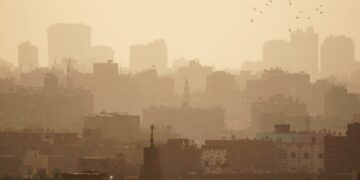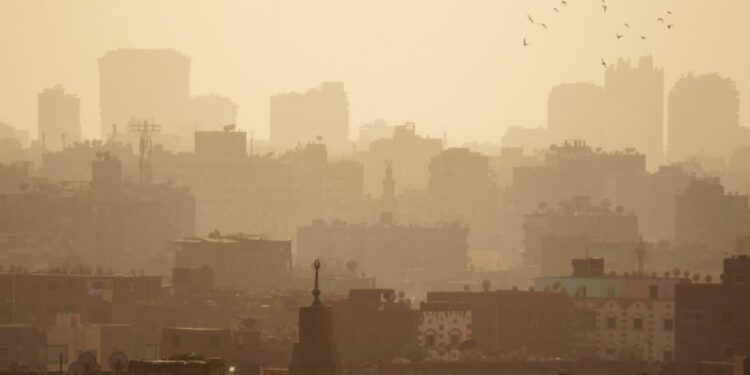By John Ikani
Air pollution in various African nations has now emerged as a significant health concern, on par with well-known fatal illnesses like HIV/AIDS and malaria in the region, as highlighted by a fresh report.
The report, titled “Air Quality Life Index,” which has been released by the University of Chicago, posits that the development is reducing life expectancy by up to 5.4 years in the most heavily polluted areas of the continent.
The Democratic Republic of Congo, Rwanda, Burundi, and Congo are all featured among the 10 most polluted countries globally, as indicated by the report.
The rise in particulate pollution poses a growing threat, particularly as central and West African countries expand their energy consumption, the report reveals.
Nigeria, too, bears a considerable pollution burden, with pollution levels in 2021 reaching 4.6 times the recommended guidelines set by the World Health Organization (WHO).
“In Lagos, which houses Nigeria’s largest population of 21.1 million, factors such as extended commutes leading to vehicle emissions, usage of fuel with high sulphur content, industrial discharges, and reliance on diesel generators due to unreliable electricity supplies collectively contribute to elevated urban air pollution levels.”
Respiratory diseases, diabetes, and even cancer are linked to fine particulate matter known as PM10 and PM2.5. These tiny particles can infiltrate the lungs and bloodstream, respectively.
The report identifies manufacturing industries, vehicular emissions, energy production, and the burning of agricultural residues as the primary sources of air pollution. In addition, the report points to governmental policies as a significant contributor to the issue.
Remarkably few governments across the continent provide their citizens with air quality data or have established air quality standards, according to the researchers.
The report underscores the fact that global funding for tackling the problem of air pollution is significantly insufficient.
While approximately $4 billion (£3.2 billion) is allocated to combat HIV/AIDS, malaria, and tuberculosis, the entire African continent receives only $300,000 to address the challenges posed by air pollution.




































